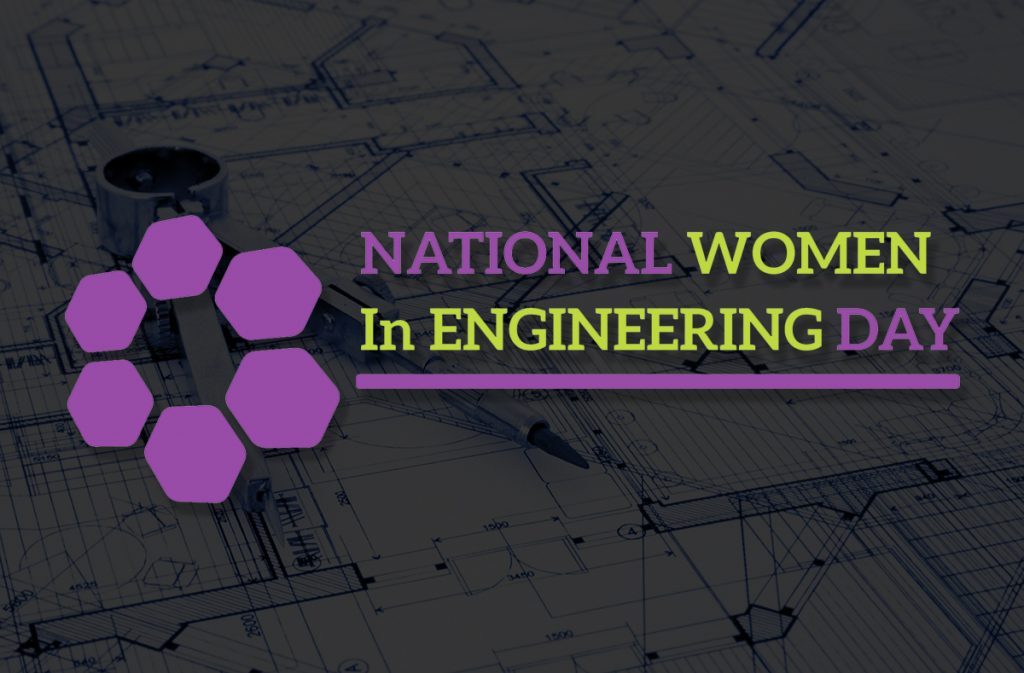
EIC celebrates the seventh year of International Women in Engineering Day by highlighting incredible women whose works you see and use every day, but perhaps might not know.
Ada Lovelace
Born in 1815, Ada Lovelace is best known as the first computer programmer for writing an algorithm for a computing machine in the mid-1800s.
Ada showed her gifts from an early age. At her mother’s insistence, she had an unusual upbringing for an aristocratic girl in the mid-17th century: she was tutored in maths and science even though such subjects were not standard fare for women at the time.
From then on she showed a talent for numbers and language, learning from Mary Somerville, a Scottish astronomer and mathematician, and one of the first women to be admitted to the Royal Astronomical Society.
When she was 17, she met the father of the computer, Charles Babbage. Babbage was a friend and mentor to Ada, giving her first look at his difference machine and asking her to translate an Italian article on his analytical engine. She not only translated the original text, but she also added her own thoughts and ideas on the machine.
Ada described in her notes how codes could be created for the device to handle letters and symbols, as well as numbers, theorising a method for the engine to repeat a series of instructions – a process that is now known as looping, used in computer programming today. Her work was published in an English science journal in 1843, giving her the title of the first computer programmer.
Lynn Conway
Lynn Conway was born in 1938 and is known for her pioneering work in developing and disseminating new methods of circuit design.
Lynn studied physics at MIT and earned B.S. and M.S.E.E. degrees at Columbia University’s School of Engineering and Applied Science in 1962 and 1963 respectively. In 1964 she was recruited to work for IBM Research in New York where she soon joined the architecture team tasked to design a supercomputer, the IBM’s Advanced Computing Systems project.
Whilst there, she made exceptional contributions to computer architecture, including the invention of multiple-issue out-of-order dynamic instruction scheduling, a paradigm used in most high-performance CPUs to make use of instruction cycles that would otherwise be wasted.
Unfortunately, Lynn was fired from IBM for undergoing gender transition in 1968. After this, she had to restart her career, advancing quickly to become a computer architect at Memorex.
She then went on to work for Xerox PARC in 1973, where she invented scalable design rules for VLSI chip design, became the principal author of the famous Mead-Conway text Introduction to VLSI systems, and launched a revolution in microchip design in the 80s. She also invented and demonstrated an internet e-commerce infrastructure for rapid chip prototyping, which lead to many major startups of the decade.
Marissa Mayer
Yahoo!’s former president and CEO, Marissa Mayer studied in Stanford and went on to graduate with a B.S. in symbolic systems in 1997 and an M.S. in computer science in 1999, both degrees focusing on artificial intelligence.
Upon graduating, Marissa soon joined Google as their 20th employee. She started out writing code, supervising small teams of engineers, and developing and designing Google’s search offerings. She quickly advanced to Director of Consumer Web Products, overseeing the search engine’s well-known layout. She was also one in three people responsible for Google AdWords.
In 2002 she started the Associate Product Manager program, an initiative to recruit new talents and cultivate them for leadership roles. In 2005, she became Vice President of Google Search Products and User Experience until 2010, when she was asked by the then CEO to head the Local, Maps and Location Services, where she secured Google’s acquisition of survey site Zagat.
Marissa left Google to become CEO of Yahoo! in 2012 and remained there until 2017. She now has her own company, Lumi Labs, that focuses on artificial intelligence and consumer media.
International Women In Engineering Day is not only a day to celebrate outstanding women, but it’s also an international awareness campaign that aims to raise the profile of women in engineering, focusing attention on the amazing career opportunities available for girls in the industry.
Ada, Lynn and Marissa were leaders in their field and pioneers in cutting edge technology. Much like them, we aim to be great forerunners in energy consultancy.
Here at EIC we combine technology with consultancy know-how to deliver energy intelligence for our clients. Our end-to-end solutions are shaping the way businesses buy, manage and control their energy and comply with client legislation.
Source :https://www.eic.co.uk/international-women-engineering-day-2020/
